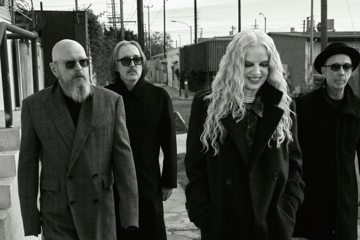The Digital Vanity Race: A curated record of your life

Are smart phones really just making us dumber?.

Header image by Babycakes Romero via HuffPost.
Smart phones have changed our entire lives. We hold all the information of the world in the palm of our hands during the day, and at night that information sits idly by on our bedside table while we sleep. I watch Seinfeld with overwhelming nostalgia. Jerry calls somebody on a landline to meet at a specific time, if they are not there, no matter, something must have come up. He moves on. Mobile phones have changed this thought process completely. We can now contact everyone we know wherever they are, at whatever time. If someone doesn’t pick up we think something has gone wrong. We hold the power to wake others up while they sleep, just by touching that bright piece of glass. A true intrusion into their lives.
I was idealistic once, and when I was, I used to turn my phone off at night, around 10:30 PM, out of nothing more than principle. I believed a phone off at night was a necessity for real sleep. A genuine disconnection. If I was desperately needed for anything at 2AM on a Tuesday night I felt as though I would likely need a good night’s sleep to deal with it: there is no phone call or message at that time of night during the week bearing good news. Our constant attachment to phones that provide us access to a wider world beyond the one we are physically in has created an unhealthy deprivation of the moment we live in, the room we’re in, and the people we are with. Yes I keep my phone on at night now: a morning alarm is a requisite to a modern life, but I still wince when I see two people at dinner staring at their crotches and not the person opposite them, even if they are looking down towards the smaller dick of the two.
It is distance from the moment. We outwardly see the world through a 4- by 2-inch screen. We now even see our own world through that same screen. Our profiles and photo accounts are so meticulously curated by ourselves we’ve become the artistic director of our tiny screen lives. We don’t even know what our own lives truly consist of because the whole day we’re trying to get that perfect shot, that perfect moment, that something extra special to make us seem bigger than what we see in juxtaposition. And to look back is to look back through a catalogue of filters, like looking at another person’s memories. Another stranger. With mobile phones everyone has become contactable everywhere. With smart phones and social media, everyone has become the boss of a media outlet. Auditing our digital lives. A record kept indefinably. More important than the hour to hour.
Don't miss a beat with our FREE daily newsletter
Evidence of being at a gig, a festival or a party, is more important than enjoying that event as an experience. It’s a sea of smartphones at any gig, a thousand faces staring up at the light in their hands, no eyes meeting the performer directly. It kind of breaks my heart. When National Geographic, god rest its soul, wrote a lifetime ago of tribes that feared the camera believing it takes a piece of a person, I initially found the thought interesting. Now though, I think those tribes may have been on to something: there is something lost at gigs nowadays. The magic in the room. It’s somehow less tangible the more smartphones that are there recording the band. There must have been a gig you’ve been to where your fellow patrons refrained from touching their phones, where you can almost grab that something extra in the air. That time when you’re really there, really in the room with the music. You can feel it on your neck. It’s the feeling that makes some gigs worth everything.
I always think back to a City And Color gig: Dallas Green’s voice and his little Martin acoustic. Nothing but people in the room, and I mean really in the room. Not updating their status. Not making a clip for Instagram. Just being and enjoying.
Why do we feel the need to perpetuate ourselves on a digital landscape for strangers to see? And yes, someone from high school on our Facebook friend list that we’ve never once hung out with is a stranger. We paint an unrealistic picture of the life we live. There is no truth to social media. There is nothing real about it. The contrary in fact: the most popular social media ‘personalities’ are the most unreal. They are just the people who commit the most amount of time to the fake candid picture. Regardless of her motives for doing so, Essena O'Neill rammed that point down our collective throats last week. We breed self-entitled egomaniacs and reward them for outlandish behaviour with likes.
The stark reality is that our society is sick with the disease of celebrity.
Social media gives everyone access to everyone, forcing us into shaping our online lives as much more glamorous than the cold reality in order to ‘keep up with the neighbours’. We are all celebrities. We all believe it. We can be even more widely known, too, and we deserve to be. We’re special. We can all be reported on by the media outlet of ourselves, or by some other channel controlled by another media tycoon like us. We can be reported as being glamorous, being irresponsible, or the coveted ‘ah hell, it’s Friday’ spiral out of control story. What drama. What excitement. What juicy reality!
Being a celebrity is revered in our society for no discernible reason. If your father is well known and you’re willing to fuck on camera you can have the chance to turn yourself into a brand. People will listen, people will follow, and the beast will eat. The label comes with no merit in our modern society: traditionally to be known or heard of, one must have done something meaningful, with impact. Write an influential book of great literary significance, perform lead in a ground breaking opera, slaughter an insurmountable number of men, women and children on a distant land before bringing home their entire cultural identity to sell to the highest bidder. Yes, there were many ways, certainly not all adding to the world’s cultural wealth, but the point is that to be known - to be a celebrity - took a skill, a vision, and an alternative goal: it took something beyond just the want to become a celebrity. It took a reason.
Now, some might say it is a skill to be able to use the tools this century presents to us to reach a huge number of people and develop a following. Some might say that is in itself a reason. Some might say that indeed. But it is this relatively newfound innate desire to consciously seek the title of celebrity as a life goal alone that separates this modern time, and every last one of us is to blame for perpetuating it. This glorification of mediocracy is plunging our society deep into a cultural dark age.
Perhaps even as deep as that gentleman plunged into Mrs Kardashian-West, many moons ago.






